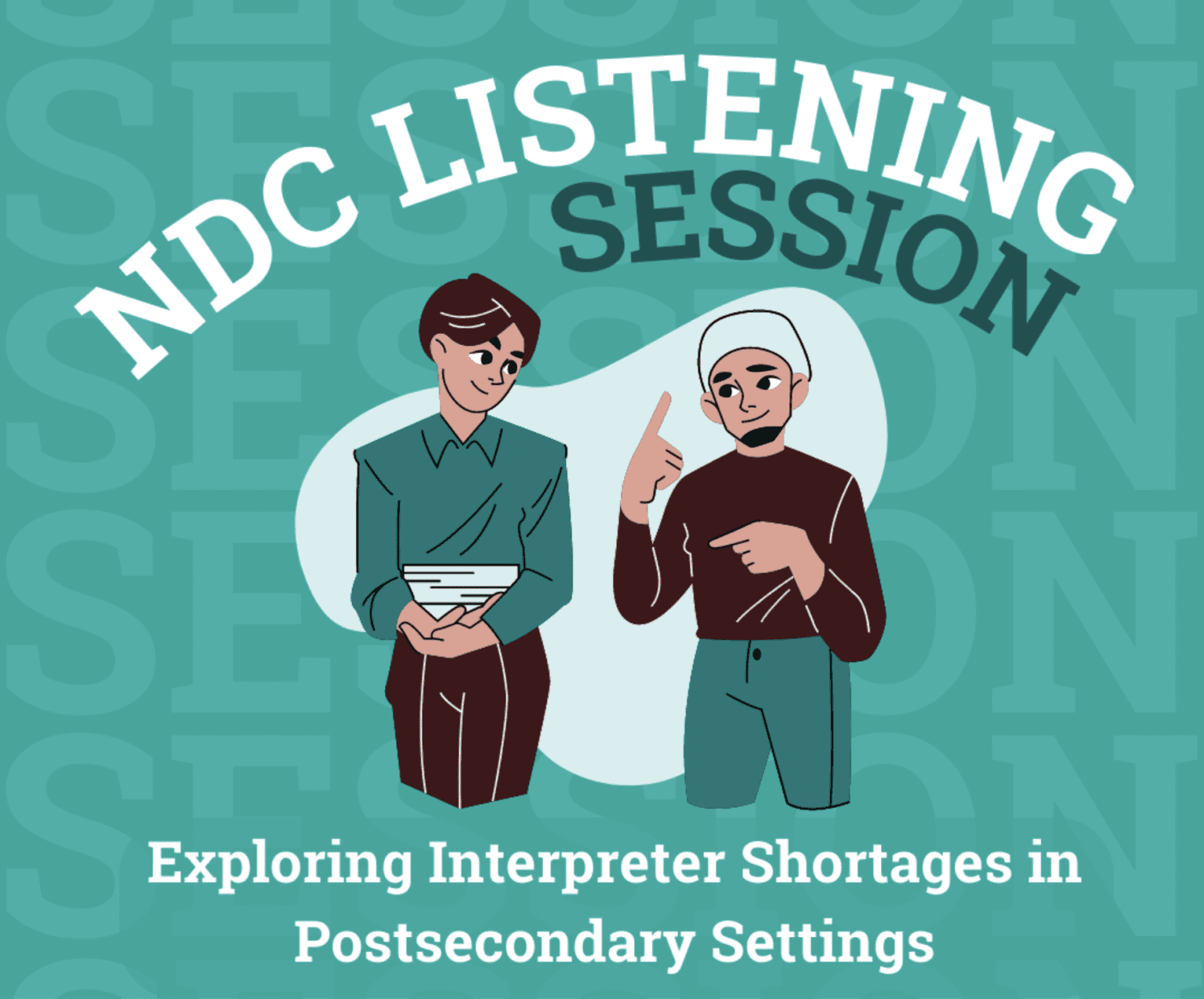The national shortage of American Sign Language interpreting services has increased the challenges facing colleges and universities across the country as they continue to provide support services to deaf students. Disability services professionals in postsecondary environments have shared that this recent trend is a result of both a limited availability of qualified interpreters and a decreased willingness of available interpreters to work in postsecondary settings.
In response to the effects of the interpreter shortage, NDC has been focused on creating opportunities for disability services professionals to connect both with us and with one another. On February 16, 2023, NDC hosted an event, Exploring Interpreter Shortages in Postsecondary Settings, to which the response was overwhelming.
100 participants were able to join us during that listening session—thank you for sharing your perspectives and engaging in constructive dialogue. We apologize to the participants who were unable to join the session due to technical difficulties. We have resolved and made the necessary adjustments for the next session, the details of which have been provided below. We look forward to seeing you there!
Issues, Strategies, and Solutions
The impact on interpreting services in postsecondary settings is significant. Disability Services Offices have reported a variety of issues that have impacted the overall delivery and quality of services for deaf students on campuses across the country.
The impact of the shortage on students is compelling. As a result of the band-aid solutions Disability Services providers resort to, students do not have equitable access to information, limitations on their ability to engage in learning and social settings, and additional responsibilities to seek clarity on class content. Overall the shortage may have a significant affect on persistence and completion. Students are unhappy with their experience in postsecondary educational and training settings.
Would much prefer to have an actual interpreter in the classroom interpreting rather than using a VRI because sights and sounds for the VRI interpreter is often limited due not being able to see and hear everyone in the classroom.
Quote from a Deaf Student
The shortage in interpreting services is intensifying existing inequities for deaf students. This listening session was an opportunity to shift the conversation towards practical solutions. In breakout sessions, participants were able to share strategies on recruiting and retaining sign language interpreters to fill existing gaps. One participant shared that they are pairing early-career interpreters with experienced team interpreters in order to bring the new interpreters along and increase the pool, as both a necessity and a recruitment strategy, while another participant stated that they work with Interpreter Preparation Programs at other colleges to offer mentoring opportunities, internships, and interviews on their campus.
Participants brought a variety of solutions to discuss in the breakout sessions. In addition, NDC summarized a list of short- and long-term solutions based on responses from participants during the listening session. Some of these solutions include:
- Creative modifications to scheduling interpreters, like block scheduling or having team interpreters – one virtual interpreter and one in person.
- Exploring sustainable perks and incentives for interpreters including paid parking or longevity pay increases.
- Documenting issues and collecting data to justify creation of full-time or permanent staffing positions.
Upcoming Listening Session
We will be hosting another session on March 30th from 1pm- 2:30pm CT. Whether you were part of the previous session, were unable to join the previous session, or are seeing this for the first time—we invite you to register now and join us! We look forward to bringing people together to address the barriers that institutions are currently navigating in service to deaf students.









